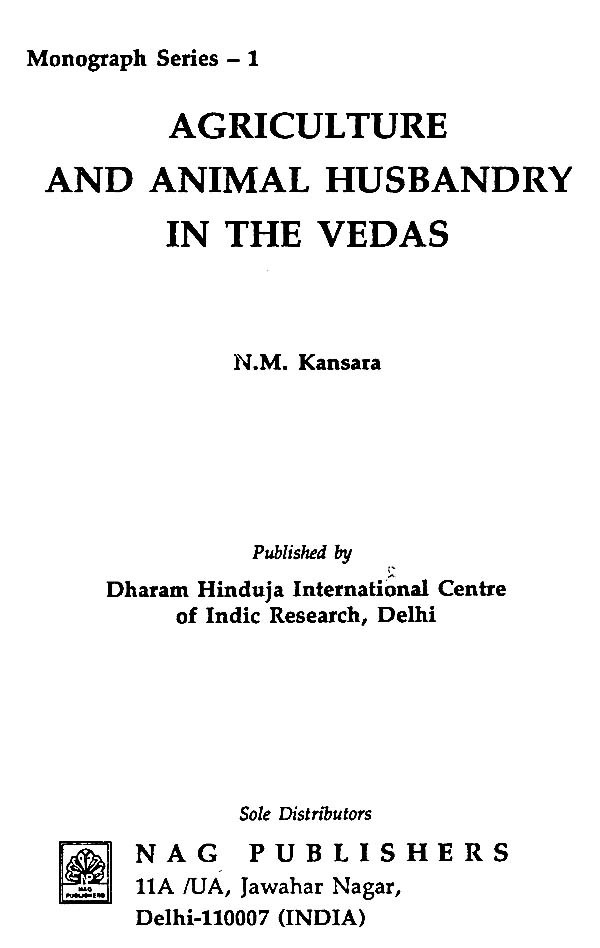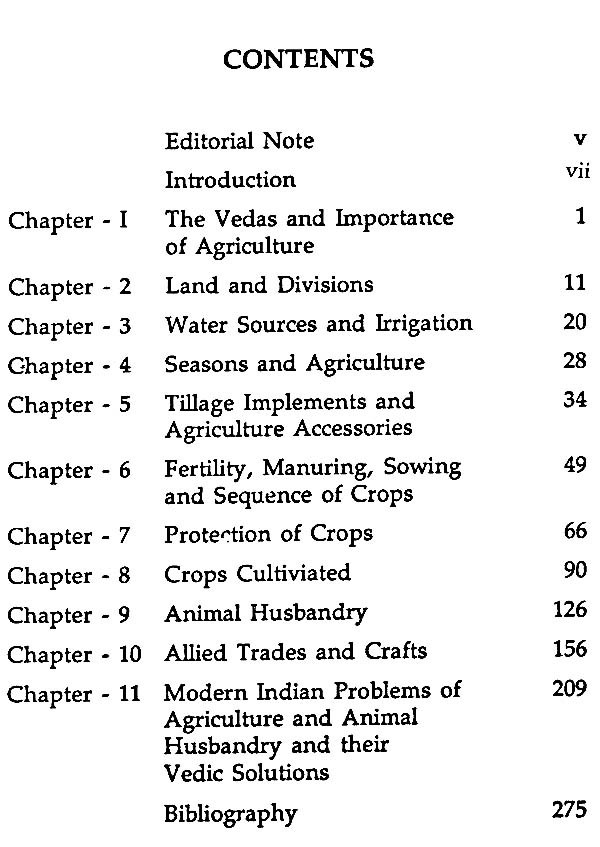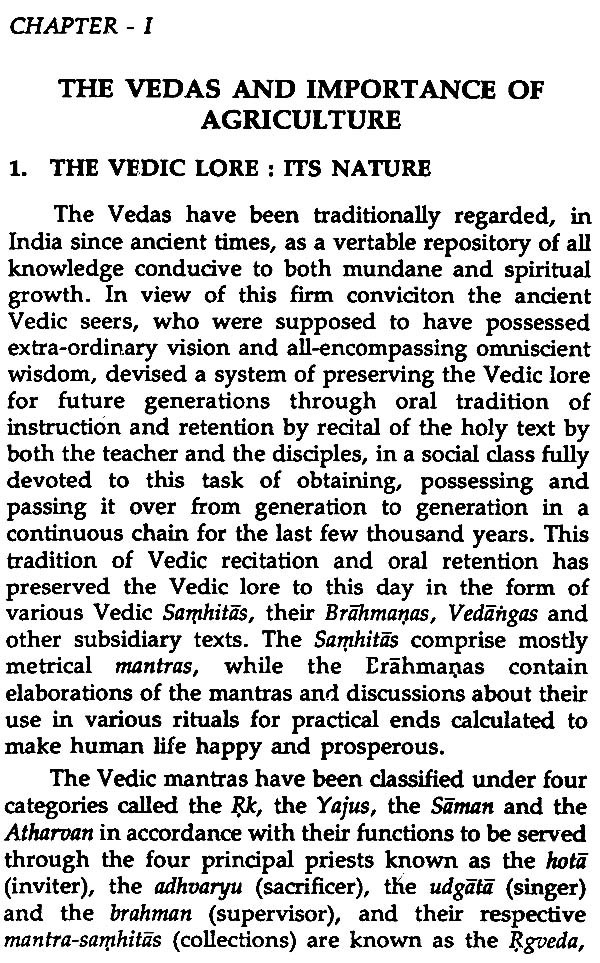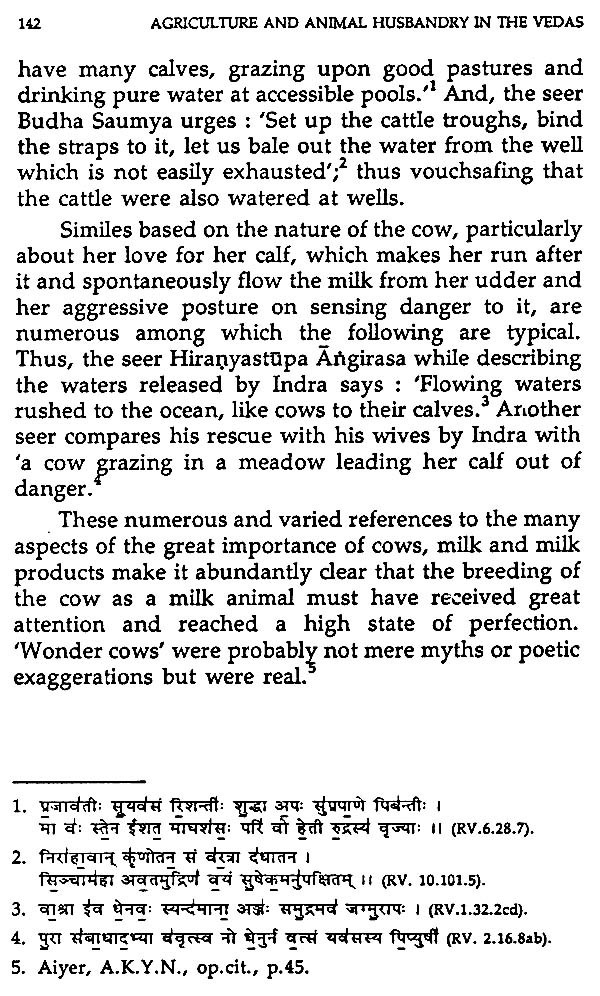
Agriculture and Animal Husbandry in the Vedas
Book Specification
| Item Code: | AZE428 |
| Author: | N.M. Kansara |
| Publisher: | NAG PUBLISHERS |
| Language: | ENGLISH |
| Edition: | 1995 |
| ISBN: | 8170813050 |
| Pages: | 290 |
| Cover: | HARDCOVER |
| Other Details | 9.00x6.00 |
| Weight | 500 gm |
Book Description
The substance of the monograph is rich and mature. Dr. Kansara has dealt with a number of subjects like land, water resources, irrigation, seasonal variations, implements, and even trades and crafts relevant or allied to agriculture and animal husbandry.
There have been some the past or chew and animal husband attempt of the present best deal with modern problems relevant fields is refreshing and insightful.
Dr. Kansara has made special study of all the four Vedic Samhitas with a view to find out the status of agriculture and animal husbandry. He is
Agriculture, animal husbandry, hand-spun cloth, pancampta and pañcagavya were there most perfect scientific inventions in tune with unified field of life, of man in relation to its environment both sentient and insentient. Tree planting and preservation was one of the fundamental articles of Hindu religion, for the Indian culture from its inception grew under the shades of trees in the hermitages of the sages. Even in the medieval period under the Hindu rulers, we find ample contemporary evidence for testifying to the expert skill in raising crops and in rearing of fruits. And the farmers only paid about 8% to 16% of their agriculture products to the state by way of general tax. Things, however, changed with the establishment of the Turkish rule, since exploitation of farmer was deemed necessary for stability of their empire, and the State used to collect half of the earnings of the farmers. Naturally, the status of the farmer suffered and his skill came to be restricted to traditional methods.
**Contents and Sample Pages**













